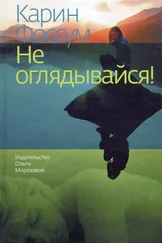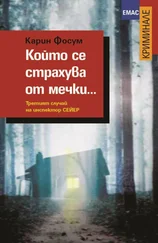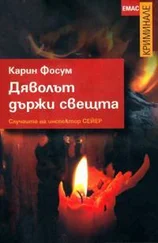“It was probably a foreigner,” Erna said. “An African, no doubt. Those people don’t know how to behave decently; they just come here to sponge off us.”
Bonnie straightened up to release her back. She had waited in a line at the employment office herself when she was unemployed and on the dole, and had noticed that there were a lot of foreigners there. She was not proud of her bitter thoughts at the time. She bent down to carry on vacuuming. Simon, where are you now? Are you sitting inside the little house in the play corner, or are you on the sofa with a book? Or maybe you’re outside sledding with the others. Don’t cry; I’ll be there soon. I just have to clean. Every day I have to clean. And maybe if I work really hard and save as much as I can, we can buy a plane ticket. To the Mediterranean. And then you can swim in warm water and play on the soft white sand.
“I hope the African is sent home,” Erna announced from the wing chair.
“If it was an African,” Bonnie said. “Norwegians can threaten people too, if they think it’s necessary.”
She moved the floor lamp and a basket of newspapers, and glanced over at the windows as she did so. They were polished like a mirror. Denatured alcohol in the water? She wasn’t going to get away with not doing it. She would have to stand on a stepladder in the snow to do the outside because the big living-room windows couldn’t be opened. She put the vacuum cleaner back in the cupboard, closed the door, and sat down in a chair; she just wanted to rest a little. Organ music poured out of the radio. Erna had closed her eyes.
Now Bonnie had to wash the floor. She filled a bucket with warm water — but not too warm because that might damage the sheen on the oak parquet. Erna was persnickety about that. Then she did the kitchen and the bedroom, and finally the bathroom. The grout between the tiles was gray and Erna had suggested that she use a toothbrush to clean it properly.
Bonnie shook out the rugs. She did the laundry and changed the bed. Then she sat down at the kitchen table and polished a five-armed silver candelabra that Erna had once bought in Egypt. According to her job description, she wasn’t supposed to do that kind of thing, but it was a job she liked. It was a welcome relief. She could sit still and rest her back. The candelabra sparkled when she was finished. But then she had to balance in the snow outside the living-room windows, while Erna stood inside and made sure she did a thorough job. She mustn’t leave any streaks from the squeegee or she was done for. Her hands were freezing inside the rubber gloves, and her ears were cold. When she was finished, she carried the stepladder inside and put it away. She watered the plants and dusted, carried old newspapers out to the recycling bin, changed a light bulb that had blown in the kitchen, and put five white candles in the newly polished candelabra. Next she went through the food in the fridge. Quite a lot was past its sell-by date, including the milk, cheese, and ham. Eventually she collapsed onto a chair. Half a day’s work done. Now she had to go to Marie’s, which was a lot easier, as Marie lived in a small apartment in a complex for the elderly. Erna got up from the wing chair and shuffled across the floor to her bedroom. Bonnie thought about Marie as she sat and waited. After a while, Erna came out again with a shoebox, which she handed to Bonnie.
“This is for you,” she said briskly. “I’ve been saving it. I used to get them for Christmas. And I don’t have use for them anymore.”
Bonnie looked at the box. It was quite light, the lid tied down with a piece of string. Erna had never given her anything. She was a real miser. The most she would do was gather up her crumbs and give them to the birds. Bonnie thanked her warmly for the gift and carried it to the door, where she said goodbye.
Marie sat in a chair while Bonnie gave her a shower.
She had a plastic poncho on over her clothes but still managed to get soaking wet, as she always did. The hardest thing was getting the temperature right because Marie was so sensitive. She had to test it on her feet first. First it was too hot, and then it was too cold. Then it was too hot again, but eventually she got it right. Afterward, once she’d dried Marie’s thin body and she was sitting on the edge of the bed, Bonnie rubbed in some cream. Marie’s old skin was so dry that it flaked. While Bonnie massaged her, Marie sat and mused about how evil people were, as was her wont. A man had strangled his wife with some rope. Then he had rolled her up in a carpet, put her in the car, and driven to the edge of a quarry and thrown her over.
“Do you think he’ll come here?” Marie asked anxiously.
Bonnie had to smile. She had worked her way down to Marie’s feet, which were as small as a child’s. “No, dear Marie, why would he do that? They’d probably had an argument,” she assured her, “and you never argue. Anyway, he’ll be sentenced to years in prison.”
“But he’ll get out again,” Marie said. “And then he’ll look for someone else. I’m not going to open the door. Give three short rings when you come so I know it’s you.”
Simon sat and waited for her by the window.
Bonnie swung in and stopped in front of the daycare. She was happy because now it was just the two of them, all evening and all night. She would give him everything he hadn’t gotten during the day; she would buy a bottle of ginger beer and a bag of dinosaur cookies. As soon as she opened the door, he came running toward her. His cheeks were red; he must have spent a long time outside in the cold. He sat down under the snail picture right away and she helped him put on his coat.
“Shall we build that tent when we get home? We’ll make a big one — we can use a sheet and blankets and I’ve got lots of clothespins.”
Simon climbed into the back seat of the car and she fastened his seat belt.
“Marie asked me to say hello,” she told him. “She never remembers how old you are; she thinks you’re already at school.”
“What’s in the box?” he asked curiously. Bonnie had put the box tied with string on the back seat. She got in and started the engine, and as usual the Opel had to cough and splutter a few times before it started.
“No idea,” she said. “Erna gave it to me. What do you think it could be? Shall we guess?”
Simon reached over and put the box in his lap. He shook it first but heard nothing. “Is it shoes?” he asked in surprise. Bonnie had to laugh.
“No,” she said, looking at him in the rearview mirror. “I couldn’t wear Erna’s shoes because her feet are too big.” She paused for a moment, looking right and then left to make sure it was clear. Then she pulled out onto the road.
“I wondered if it might be a vase,” she said, “or some coffee mugs that she doesn’t need anymore. She said that she got it for Christmas and she doesn’t need it. That’s she’s too old.”
“Do you get too old for coffee mugs?” Simon asked.
“No, of course not, that was silly of me. Perhaps it’s chocolates; that’s what old ladies get for Christmas. And then they’ll probably be hard and moldy and we won’t be able to eat them.”
“They also get slippers,” Simon said, like a little grownup. “Granny has lots of pairs and she got them all from us.”
“It might be a smart little handbag,” Bonnie said after a while. “That would be nice. Erna never goes to parties. So maybe she thought that I might have more use for it than she does.”
Simon leaned forward and grabbed hold of the back of her seat. “You don’t go to parties either,” he said.
She looked at him in the mirror again. “No,” she replied. “I don’t. I’d much rather be with you.”
When they got home and had taken their coats off in the hall, Bonnie asked if they should eat or open the box first. Simon had to think about it.
Читать дальше












